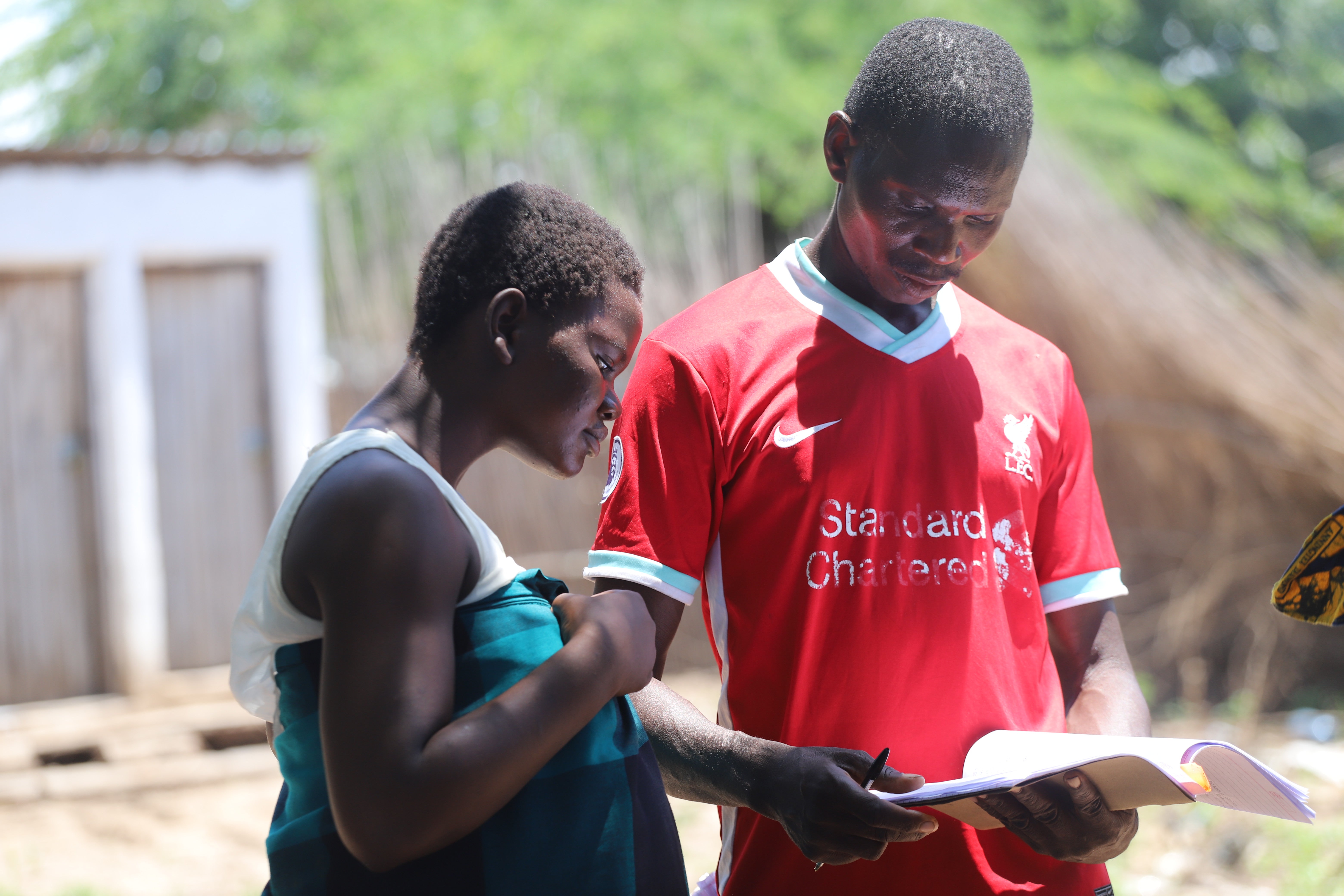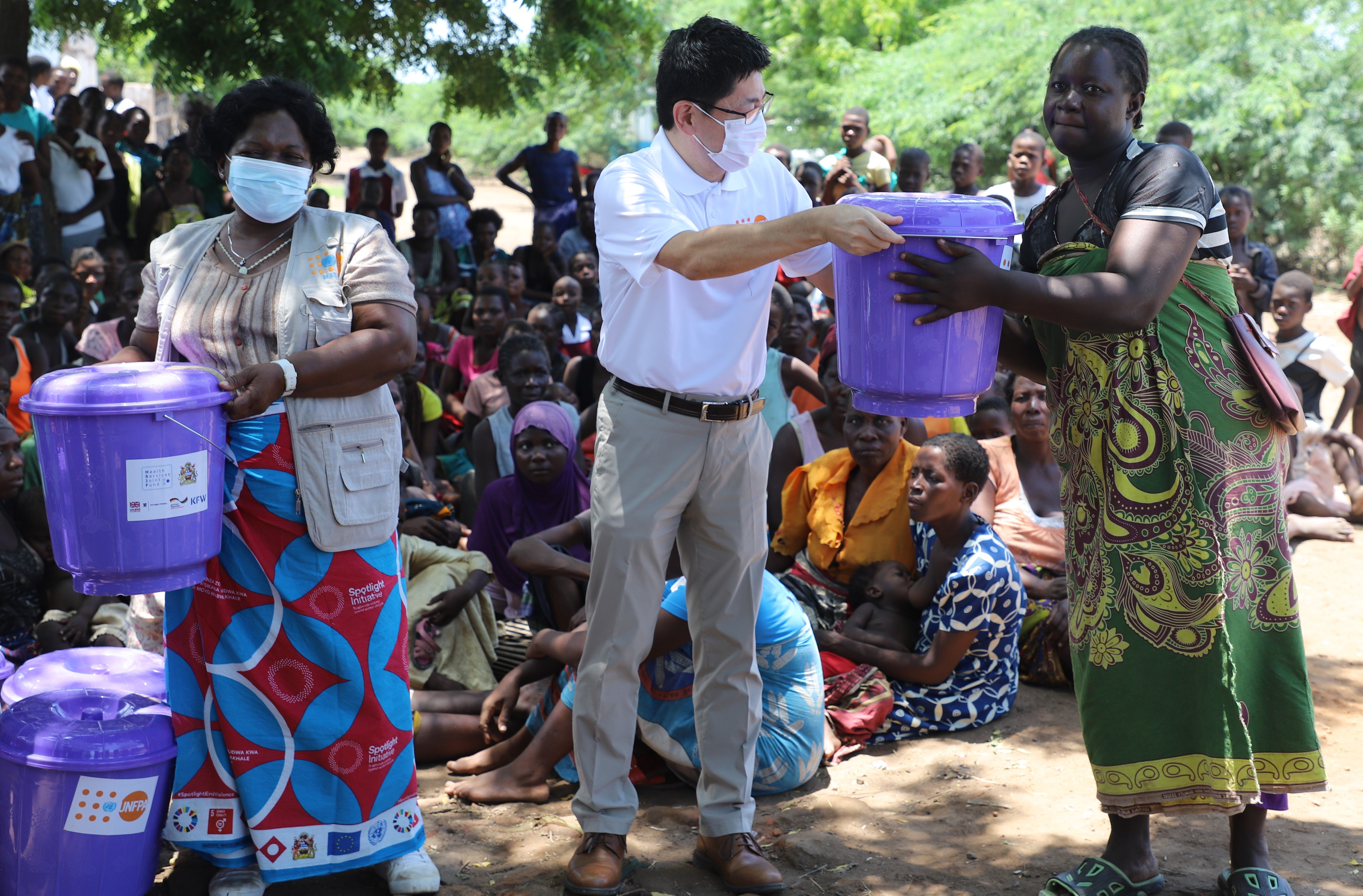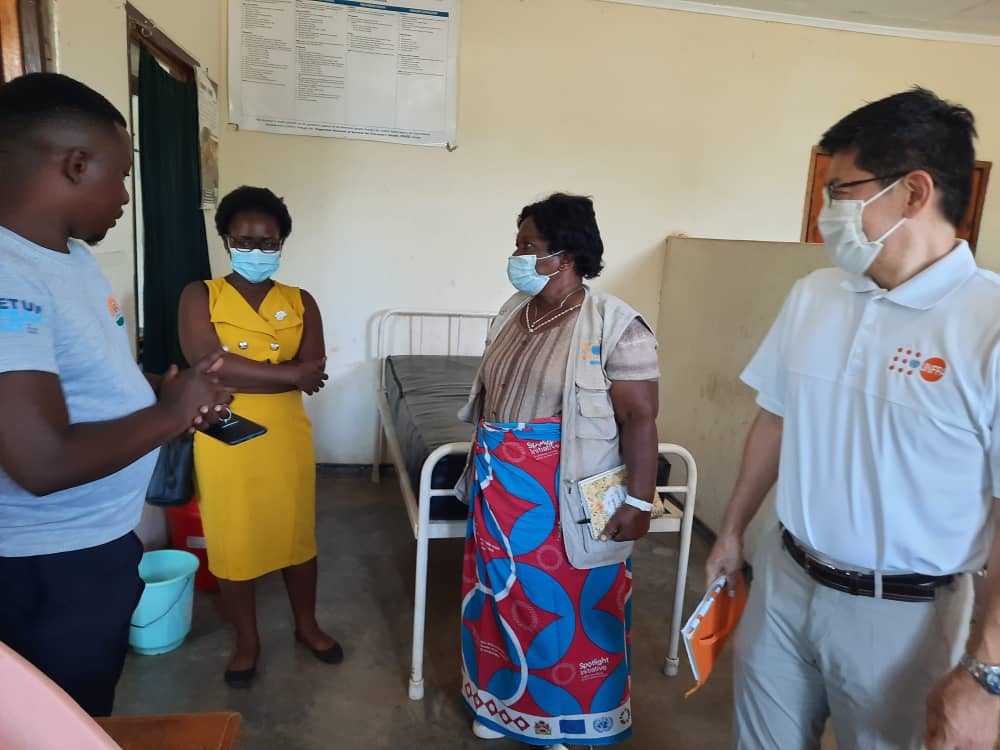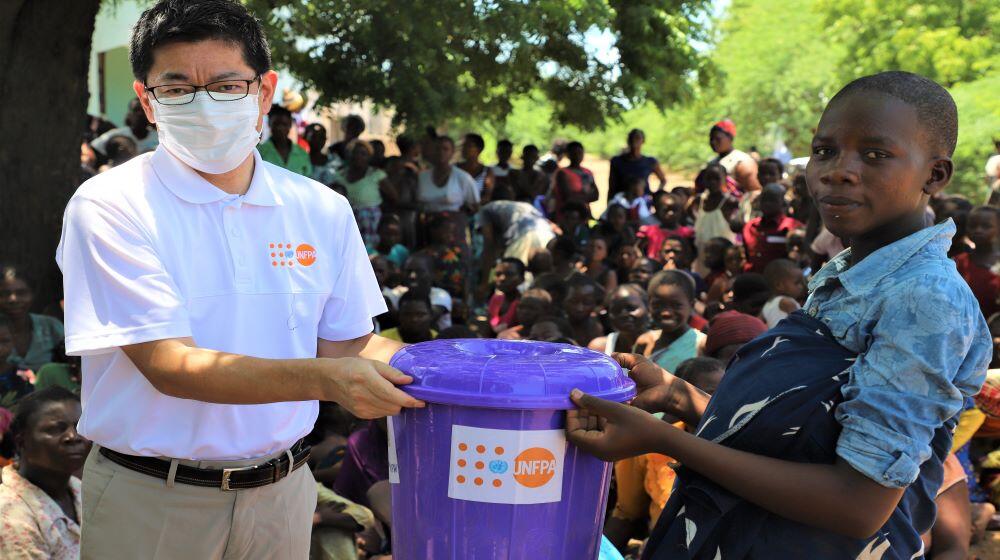Displaced women and girls at Sekeni Primary School Camp in Chikwawa have expressed gratitude to UNFPA - the United Nations agency dedicated to preventing maternal deaths, advancing family planning and ending gender-based violence - for its timely intervention after the district was hit by Tropical Storm Ana on 24 January.

During the distribution of dignity kits in Nchalo on 9 February, Yankho Alufandika (21), a resident in the shelter, said since people moved to the camp late January, this was the very first relief assistance that this community received despite their dire situation.
“The support by UNFPA has come at a right time as many women and girls in the camp were struggling to maintain their hygiene,” said Alufandika who spoke on behalf of more than 300 residents of the camp. “Many came to this camp with nothing as their personal possessions were swept away by the floods.”
UNFPA with funding from KFW, a German development aid agency, procured 5,000 dignity kits, which were prepositioned in the disaster prone southern region. When Tropical Storm Ana hit the country, the supplies were quickly released to the affected districts, targeting women of child bearing age and adolescent girls. The distributed kits kept in the buckets included soaps, sanitary pads, and underwear - essential items for ensuring hygiene and restoring dignity of the pregnant women, lactating mothers and adolescent girls.

At Sekeni Camp, UNFPA distributed 209 dignity kits. Another 365 kits were distributed at Matsukambiya camp in the district. Chikwawa is by far the hardest hit district by the flooding. According to the latest statistics, the district has 92 camps where people are seeking temporary shelter and relief.
The displaced people here in Nchalo spend nights in the classrooms of a nearby school without provision of light or mattresses. During the day, they wait for relief to arrive siting under the trees, while the classrooms are occupied by the students.
“Women and girls are, particularly, in a vulnerable situation, for example not only faced with their health and hygiene challenges but also with potentially heightened risk of gender based violence.” says UNFPA Deputy Representative, Masaki Watabe, during his visit to the affected areas in Nchalo.
“That is why we are focusing on this particular group of people and working closely with our districts’ counterparts and NGO partners.”
Critical information such as how to respond to and report on gender-based violence cases was also provided during the distribution.
Cyclone Ana disrupts health services
Chikwawa district has a total of 24 facilities and 21 are having access challenges as roads are still cut-off by water, resulting in disruption in the provision of life-saving maternal, neonatal and under five services in health centers, health posts and outreach clinics. In addition, many of the health facilities in the district are still without electricity due to Cyclone Ana induced floods.
Watabe also visited Nchalo health centre which was closed for a week after floods submerged part of the facility. Currently, the maternity wing of the centre is only operating during the day as there is no power. Those delivering in the evenings have to be referred to the district hospital. The facility is also yet to get reconnected to running water.

“We received reports on the water and electricity supply situation,” says Watabe. “UNFPA has set aside some funds to respond to the most immediate needs as requested by Chikwawa District, and we will try to prioritize the quickest restoration of maternal services in facilities such as Nchalo Health Centre. This will enable the displaced people, especially pregnant women, to have access to critical health care.”
UNFPA calls for more resources to scale up response
Watabe added that UNFPA needs more resources to ensure that pregnant women deliver babies safely and the displaced have continued access to family planning and relevant information to remain healthy.
“Malawi urgently needs additional resources to tackle this situation that has affected the hundreds of thousands of people,” says Watabe. “We are calling upon the international community for support to enable us to scale up the response as quickly as possible.”
Joseph Scott, Communications Analyst


